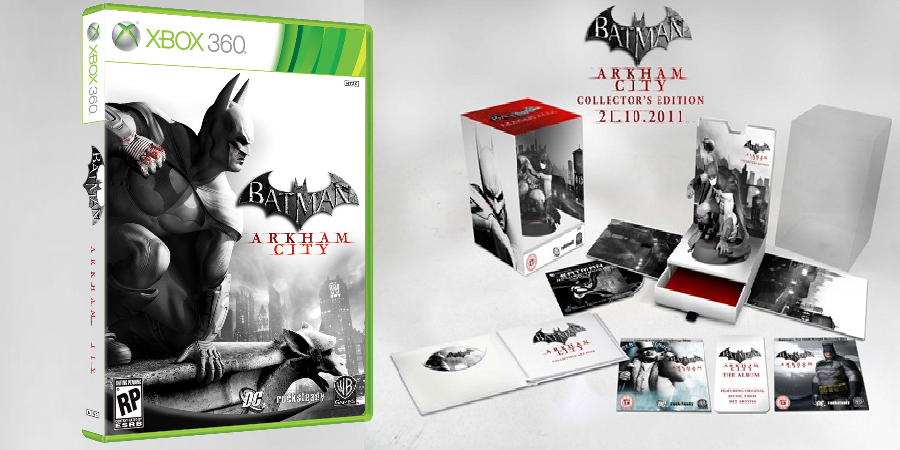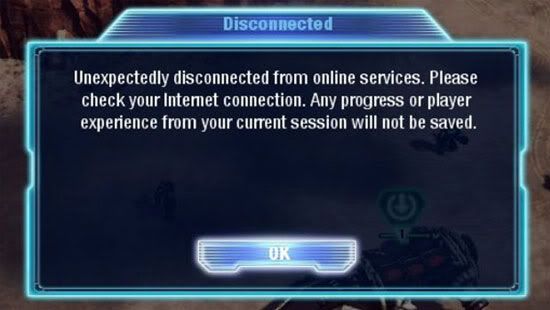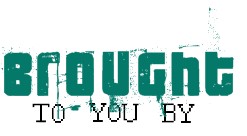Second Hand Games
Video games have seen a flux of prices over the last ten years thanks in part to rising development costs, and the introduction of new market concepts and distribution routes. While talk of micro-economies and technological advancements are always fascinating, let’s focus for a minute on the second hand games market. On one hand is the producer that decries it, and on the other hand is the consumer that heralds it.

Batman: Arkum Asylum Regular Edition - $60/Batman: Arkham Asylum Collector's Editon - $100
Brand new titles from major developers demand $60 on average, with special editions grasping for $80 to $120 depending upon packaged extras. Major releases get the physical treatment with pressed discs, plastic cases, and printed manuals. Their digitally distributed doppelgangers are treated as a parallel release or an afterthought, despite commanding the same prices. These kinds of games are developed by large staffs of industry professionals with a budget in the form of millions and tens of millions of dollars. This doesn’t take into account games with the same moniker that have been completely reworked and discounted to sell on handsets and portables.
 Indie developed games typically get the opposite treatment with a sell through focus on the digital side, and at prices that range drastically from $0.99 to $30. The type of platform heavily affects price. Mega Man II as an Apple App on Ipods or Ipads costs $2.99. On Wii it’s roughly $5, and with the PS3 it goes for $5.99 exactly. Granted each version is slightly different, Mega Man II is still a 1989 game that looks and operates the same way across each medium. The staffs on these projects are small in number and often contain fresh employees at the beginning of their careers and maybe even those that are not interested in participating in the ‘mainstream’ game development process. Due to these factors the production budgets can range from thousands to tens of thousands of dollars.
Indie developed games typically get the opposite treatment with a sell through focus on the digital side, and at prices that range drastically from $0.99 to $30. The type of platform heavily affects price. Mega Man II as an Apple App on Ipods or Ipads costs $2.99. On Wii it’s roughly $5, and with the PS3 it goes for $5.99 exactly. Granted each version is slightly different, Mega Man II is still a 1989 game that looks and operates the same way across each medium. The staffs on these projects are small in number and often contain fresh employees at the beginning of their careers and maybe even those that are not interested in participating in the ‘mainstream’ game development process. Due to these factors the production budgets can range from thousands to tens of thousands of dollars.
Developers form both sides of the aisle have levied complaints against the second hand games market. The general complaint is that certain businesses negate potential new sales and ultimately lower company profits. Without those massive profits, they can’t retain the talented employees that high profile games need to effectively compete in the market. In other words, jobs will be lost and game quality will suffer. Aside from speaking aloud about the issue, certain companies have taken steps to limit content and use with codes or specialized DRM (digital rights management). As much as the employees have a right to free speech and the companies have a right to restrict their product, these actions do diminish the positive perceptions of their respective companies and, subsequently, their products. In regards to content restrictions, unannounced actions such as these serve as unwanted surprises or major inconveniences to legitimate customers. It’s almost like alienating the very base that keeps your company afloat.


As a game reseller myself, I look at physical game products as an investment. Not only do I buy new to get the most recent entertainment experience, but I also do it as a vote of confidence in a company’s product. When I laid $60 down for Portal 2, I was telling Valve that I liked this game and wanted to see more sequels or titles done in this style. After I’ve had my fill of a particular title, I hate to think of a disc sitting on my shelf collecting dust. That’s when I head to a resell venue such as eBay, Glyde, or Half Price Books to free my conscious and fatten my wallet. Not only does someone else get to revel in the same game play experience that I had, but I’ve also potentially created another customer that may or may not jump onboard with future sequels or the company’s other offerings. On top of that I’ve got more cash to expend on my next video game purchase and cycle goes on. Take away my ability to resell games and all of sudden I’m budgeting what I spend in the market. I won’t take leaps of faith (though that might have been good with my purchase of Transformers 3DS – in other words, it was really bad) and I might even wait till a game has been reduced in price either through sale or age. Digitally distributed games have already taken my right away to resell the product with the EULA (end user license agreement). As a consumer I’ve weighed the pros and cons and have accepted that fact in turn for low cost products. However I’m not bound to any one distribution route and I spend my money wherever I please.
The game market is a dance between seller and buyer. When one side pushes too far, the other will push right back. Outside of some draconian law enforcement, I believe the free market will naturally find a balance that will please both sides of the discussion.
 Indie Games,
Indie Games,  Used Games | in
Used Games | in  Articles
Articles 










